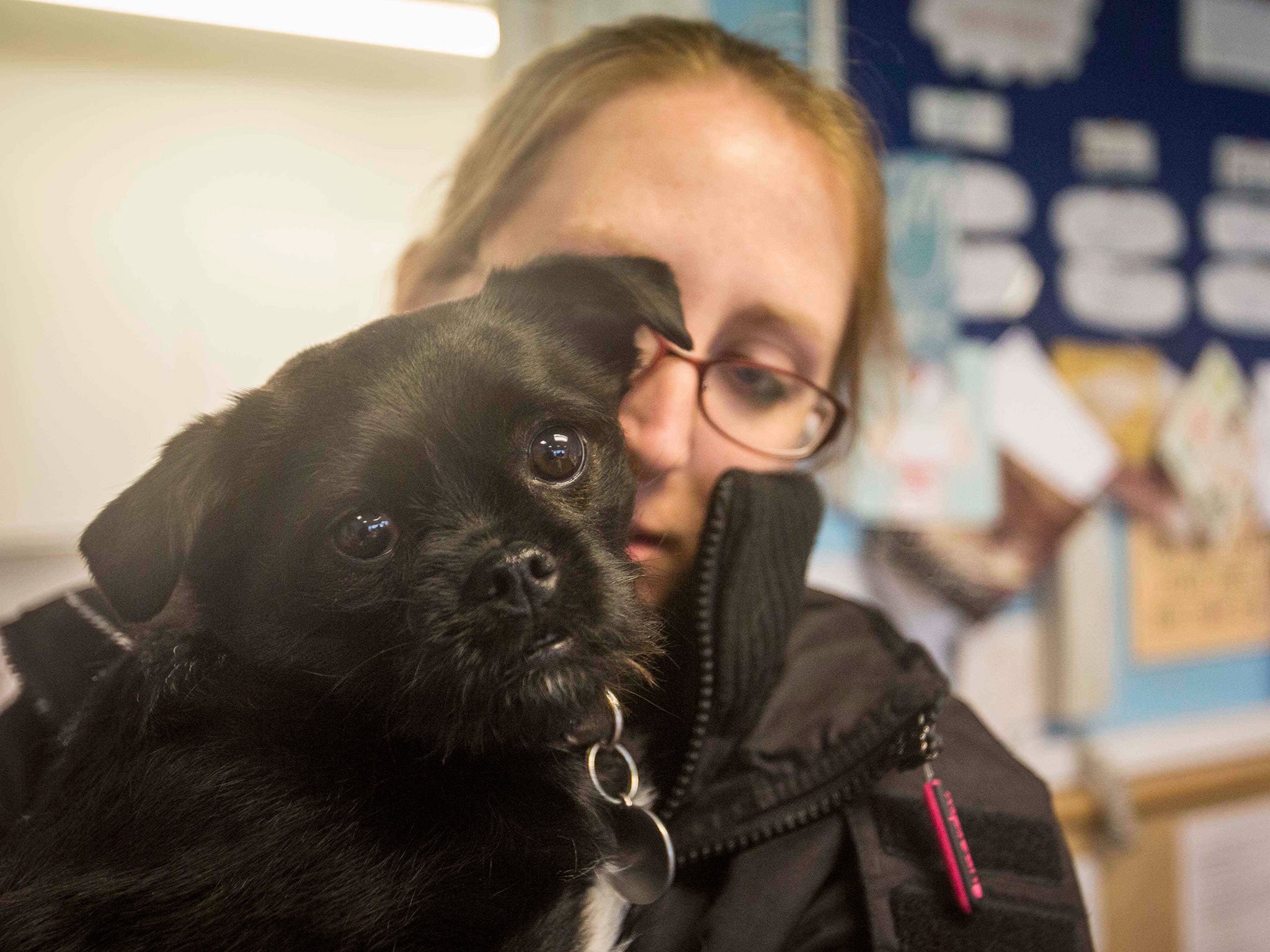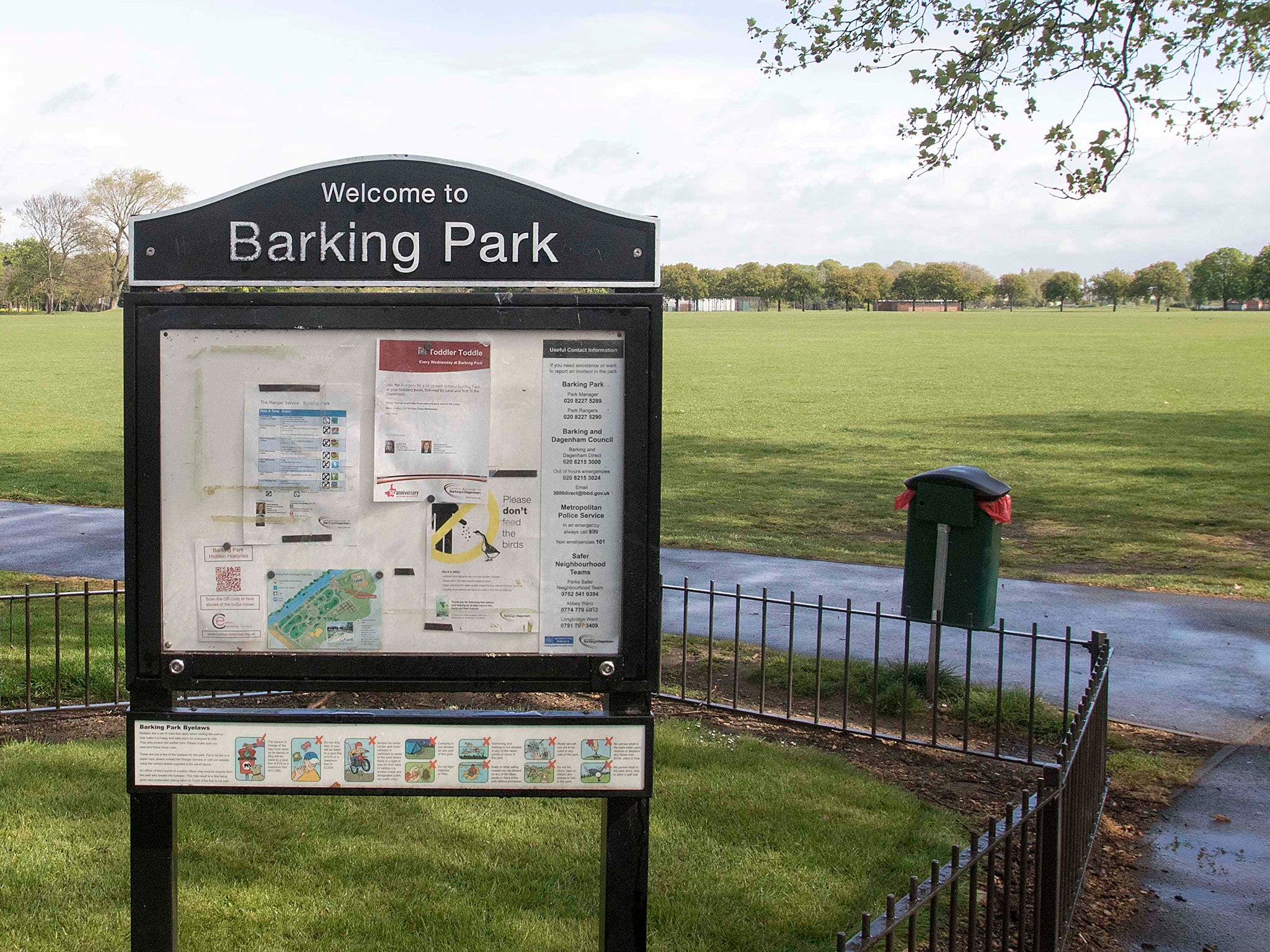The DNA database for canine excrement – in Barking
Forensic trail leads to a fixed penalty for offenders – but opinion among local dog owners is divided

Your support helps us to tell the story
From reproductive rights to climate change to Big Tech, The Independent is on the ground when the story is developing. Whether it's investigating the financials of Elon Musk's pro-Trump PAC or producing our latest documentary, 'The A Word', which shines a light on the American women fighting for reproductive rights, we know how important it is to parse out the facts from the messaging.
At such a critical moment in US history, we need reporters on the ground. Your donation allows us to keep sending journalists to speak to both sides of the story.
The Independent is trusted by Americans across the entire political spectrum. And unlike many other quality news outlets, we choose not to lock Americans out of our reporting and analysis with paywalls. We believe quality journalism should be available to everyone, paid for by those who can afford it.
Your support makes all the difference.With her large, dark eyes and soft velvety ears two-year-old Tilly may not look like your average criminal – yet this week she had her cheek swabbed for a new canine DNA database.
Scampering around the local vets in Barking, east London a day after the procedure, Tilly seemed unperturbed by the event, full of life and totally unaware of her place in canine history.
The first to contribute DNA to a database to tackle the nation’s dog-poo problem, the scheme, launched this week, aims to trace uncollected faeces back to their owner.
Residents around the UK are sick of dog-owners turning a blind eye while their pets do their business and leaving the steaming mess behind.
The new initiative hopes to clamp down on illicit dog deposits by banning their owners from walking their pets in parks and other public spaces unless they are on the DNA registry.
The pilot scheme includes 27 parks in Barking and Dagenham Council, kicking off with Barking Park in the summer.

The plan is to catch and fine people £80 for not cleaning up after their dogs by taking a sample of the offending faeces and matching it with the owner through the DNA database. The tests are said to be 99.9 per cent accurate.
The residents and dog-owners of Barking – which spends £2.3m a year clearing up dog faeces – who spoke to The Independent, broadly welcome the scheme but remain sceptical as to whether it will work in practice – including Tilly’s owner, Kim.
“It’s a good idea but it’s going to be difficult to enforce,” said Kim, adding that the DNA gathering-process was quick and, judging by Tilly’s reaction, painless.
“They just put a swab in her mouth and rubbed it around her cheek. But it could still be a bit of a waste of money because a lot of people just won’t do it,” added Kim. The cheek cells are sent to a laboratory before being added to the central register, managed by PooPrints UK.
Julia, an Australian living in Barking who has left her dog Down Under, said: “It is a step in the right direction. Dog mess is certainly a public health issue, it’s a problem. But getting people to volunteer to get their dogs on the DNA registry is going to be tough.”
Anne Hoad, the owner of a Springer Spaniel and a King Charles Cavalier, was walking along the canal at the edge of the park.
“This would be no problem for me,” she said. “Dog mess is an issue round here and I always clean up every time.
“When I see someone leaving their dog’s mess I go after them and say ‘excuse me’ and if they don’t have a bag of their own, I hand them a bag. I always come prepared,” added Ms Hoad, a volunteer with the South Park Users Group, which keeps the area clean and tidy.
The main concern, for Ms Hoad and others, is that the DNA database will fill up with law-abiding dogs and their owners, while the rogues won’t sign up.
“The people most likely to disregard others by not cleaning up after their dog are likely to be the same people that don’t bother with the DNA database,” she said.
Out walking in the park David, who is not a dog owner, is philosophical about the new scheme.
“You do get fed up with dog poo around the place. Realistically, I don’t think they’ll ever catch anybody but the presence of the new database could act as something of a deterrent, so it could be worthwhile.”
In the short term, local enforcement officers will check dog owners walking in the park to see if they are registered. If they are not, they will be given a warning and told to sign up. If they still don’t comply, they will be fined well in excess of the £80 dog-mess charge.
In the longer term, the council is working with vets to offer a combined DNA swabbing and micro-chipping service.
Next April it will become compulsory for every dog to have a microchip the size of a grain of rice implanted between the shoulder blades. This will contain an ID number and basic information about the owner. Including DNA information on the chip allows enforcement officers with microchip scanners to carry out spot-checks in the park.
Despite the reservations of the locals StreetKleen – the licence holders for the project – said similar schemes in the US have reduced dog fouling by up to 90 per cent.
A spokesman for the council added: “This would be enforced as any other FPN [fixed penalty notice, such as parking fine] is enforced, including those in place for dog fouling. We work with police routinely to enforce FPNs.”
Join our commenting forum
Join thought-provoking conversations, follow other Independent readers and see their replies
Comments